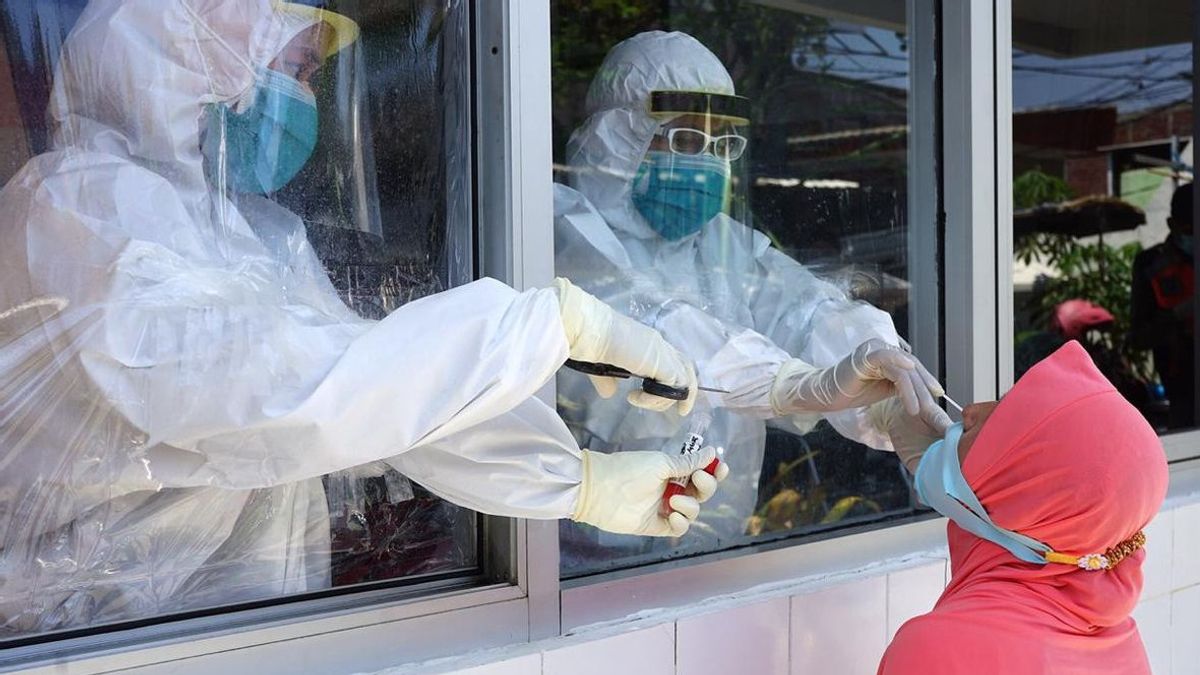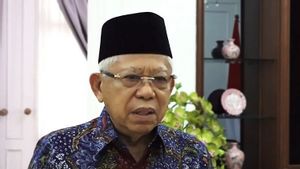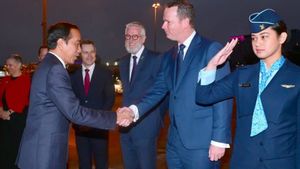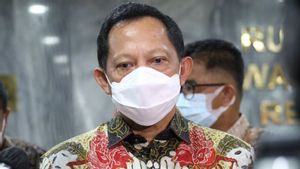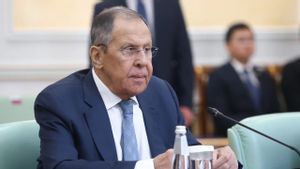JAKARTA - The Australian government appreciates cross-sectoral collaboration in Indonesia in an effort to overcome the COVID-19 pandemic, especially in order to reach vulnerable communities that require vaccination.
Reported by ANTARA from a written statement from the Australian-Indonesian Partnership for Health Resilience (AIHSP), Wednesday, July 5, the appreciation was conveyed by the Ministerial Counsel for Governance of Government and Human Development of the Australian Embassy in Jakarta, Madelaine Moss.
The collaboration was realized, among others, through the cooperation between Indonesia-Australia in partnership with the media, NGOs, private sector, and campuses to build inclusive communication materials in Central Java, South Sulawesi, Bali, DI Yogyakarta, and East Nusa Tenggara.
"Especially through the media to be able to reach those who are disturbed by sight, hearing, and the elderly. Through this collaboration, more than 200 thousand people are vulnerable to being vaccinated," said Moss.
Moss conveyed this appreciation while attending a webinar entitled "Collaboration for Inclusive Vaccination: Learning for Indonesia's Health Resilience in the Future" which will be held on Tuesday (4/7).
According to Moss, government and private collaboration in implementing risk communication, improving inclusive services, and extensive networks have increased public health resilience.
The Director General of Disease Prevention and Control of the Indonesian Ministry of Health, Maxi Rein Rondonuwu, emphasized that risk communication and community involvement are important in order to provide inclusive services, especially in order to reach vulnerable groups.
"Risk communication is one of the main pillars of the response to the handling of the COVID-19 pandemic in Indonesia and continues to this day as a pillar supporting the success of vaccination," he said.
Director of Immunization Management of the Ministry of Health Prima Yosephine Berliana Tumiur Hutapea believes cross-sectoral collaboration is the main factor that has made Indonesia the top five most successful countries for COVID-19 vaccination in the world.
In line with that, continued Prima, the Ministry of Health is pursuing three strategies to accelerate equitable vaccination coverage for high-risk groups.
"The first is the innovation of the vaccination route, which is to involve cross-sectors," she said.
Second, policy innovations include the issuance of a Circular Letter of the Minister of Health in 2021 concerning the Acceleration of the Implementation of COVID-19 Vaccination for certain groups and the simplification of screening forms.
SEE ALSO:
Third, innovation from the implementation of inclusive vaccinations, ranging from registration to delivery supported by community organizations, and professional and religious organizations, as well as the integration of primary services such as Posbindu for vaccination for the elderly.
Based on SATUSEHAT data as of July 1, 2023, more than 452 million injections of the COVID-19 vaccine have been carried out and more than 64 percent of the total Indonesian population has received complete primary vaccinations.
A total of 18 out of 34 provinces have vaccinated against the second dose of COVID-19 in 70 percent of the total population.
Meanwhile, in 10 out of 34 provinces, the second dose of vaccination has reached 70 percent of the elderly population.
Based on the priority group, the primary COVID-19 vaccination for the elderly has reached 70.33 percent, and in the general public/voltage of 70.94 percent.
The English, Chinese, Japanese, Arabic, and French versions are automatically generated by the AI. So there may still be inaccuracies in translating, please always see Indonesian as our main language. (system supported by DigitalSiber.id)
